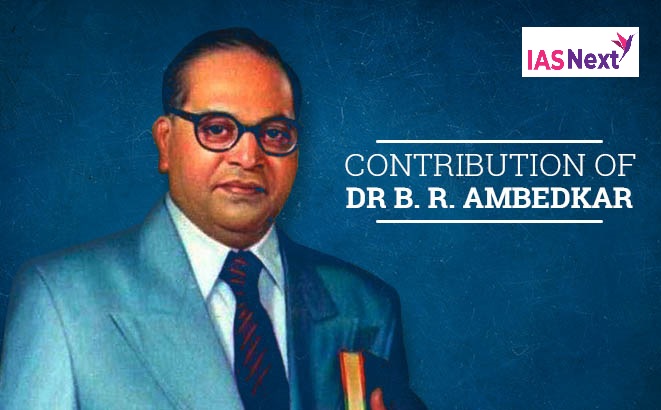CURRENT AFFAIRS
Get the most updated and recent current affair content on Padhaikaro.com
BR Ambedkar
- IAS NEXT, Lucknow
- 18, Apr 2022

Reference News:-
The nation celebrated the 131st birth anniversary of B R Ambedkar on April 14 this year.
- His role as a social reformer, chairman of the draft committee of the Indian Constitution, and first law minister of the country is well-known.
Dr.B R Ambedkar contribution towards Constitutional Reforms:
- As chairman of the Constitution’s drafting committee, he took meticulous measures to build a just society through liberty, equality and fraternity.
- His advocacy for universal adult franchise ensured that women had the right to vote immediately after Independence.
- His advocacy of the Hindu Code Bill was a revolutionary measure towards ameliorating women’s plight by conferring on them the right to adopt and inherit.
- He contributed to developing federal finance.
Ambedkar as a pioneer in establishing many national institutions:
- The Reserve Bank of India was conceptualised from the Hilton Young Commission’s recommendation, which considered Ambedkar’s guidelines laid out in The Problem of the Rupee: Its Origin and Its Solution.
- As a labour member in Viceroy’s Executive Council from 1942 to 1946, he evolved numerous policies in the water, power and labour welfare sectors.
- His farsightedness helped in establishing the Central Water Commission in the form of the Central Waterways, Irrigation and Navigation Commission (CWINC), Central Technical Power Board.
- He helped in establishing the integrated water resources management through the establishment of the river valley authority, which actively considered projects like the Damodar River Valley Project, the Sone River Valley Project the Mahanadi (Hirakud Project), the Kosi and others on the Chambal and the rivers of the Deccan region.
- The Inter-State Water Dispute Act, 1956, and the River Board Act, 1956 emanate from his vision.
Contribution for the welfare of labourers and Industrial Workers:
- As a member of the Bombay Assembly, Ambedkar opposed the introduction of the Industrial Disputes Bill, 1937, as it removed workers’ right to strike.
- He contributed to the reduction of working hours to 48 hours per week, lifting the ban on the employment of women for underground work in coal mines, introducing the provisions of overtime, paid leave and minimum wage.
- He also helped to establish the principle of “equal pay for equal work” irrespective of sex and maternity benefits. L
- Ambedkar outrightly opposed the communist labour movements, their extraterritorial loyalties and their Marxian approach of controlling all means of production.
Ambedkar: Voice of the depressed classes:
- Ambedkar was the voice of the Depressed Classes on every platform. As their representative at the Round Table Conference, he championed the cause of labour and improving the condition of peasants.
- During the Bombay Assembly’s Poona session in 1937, he introduced a Bill to abolish the Khoti system of land tenure in Konkan.
- In Bombay, the historic peasant march to the Council Hall in 1938 made him a popular leader of the peasants, workers, and the landless. He was the first legislator in the country to introduce a Bill for abolishing the serfdom of agricultural tenants.
- His essay titled ‘Small Holdings in India and their Remedies’ (1918) proposed industrialisation as the answer to India’s agricultural problem and is still relevant to contemporary debates.